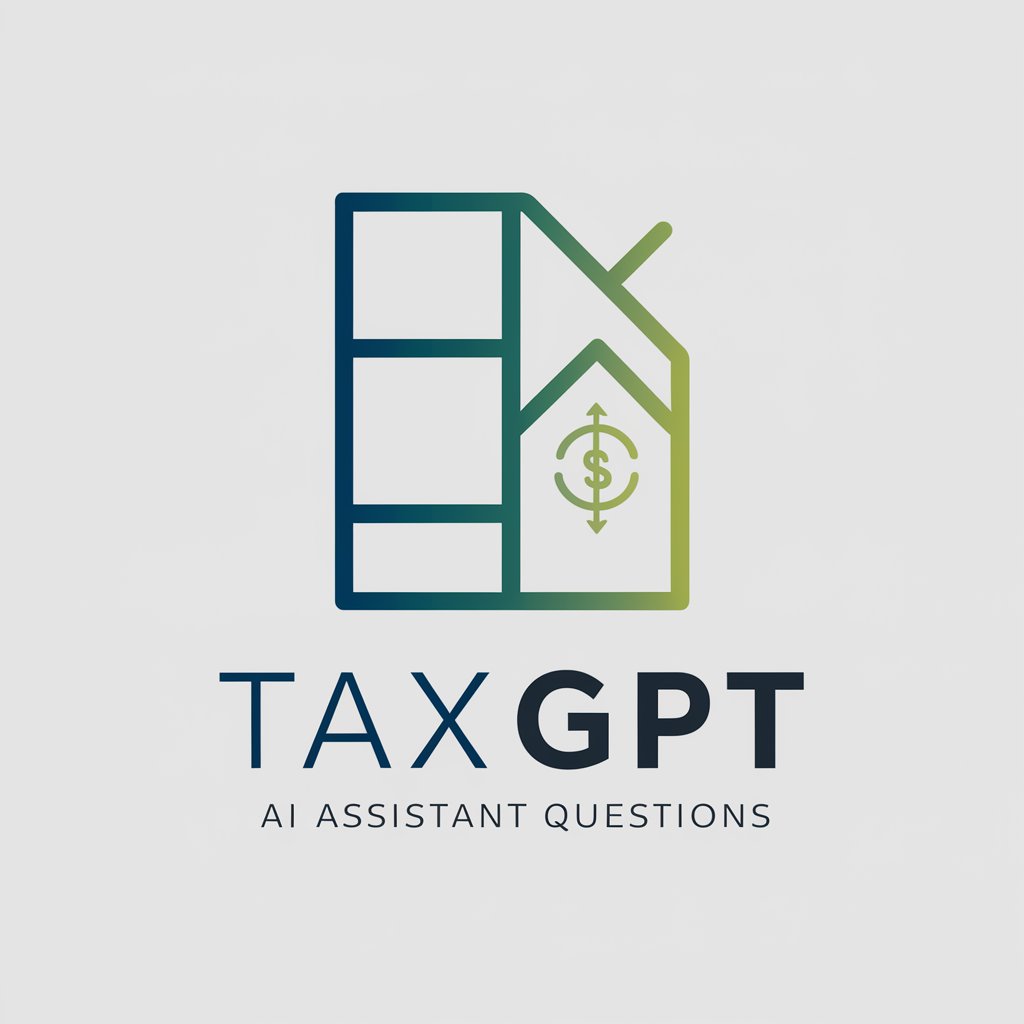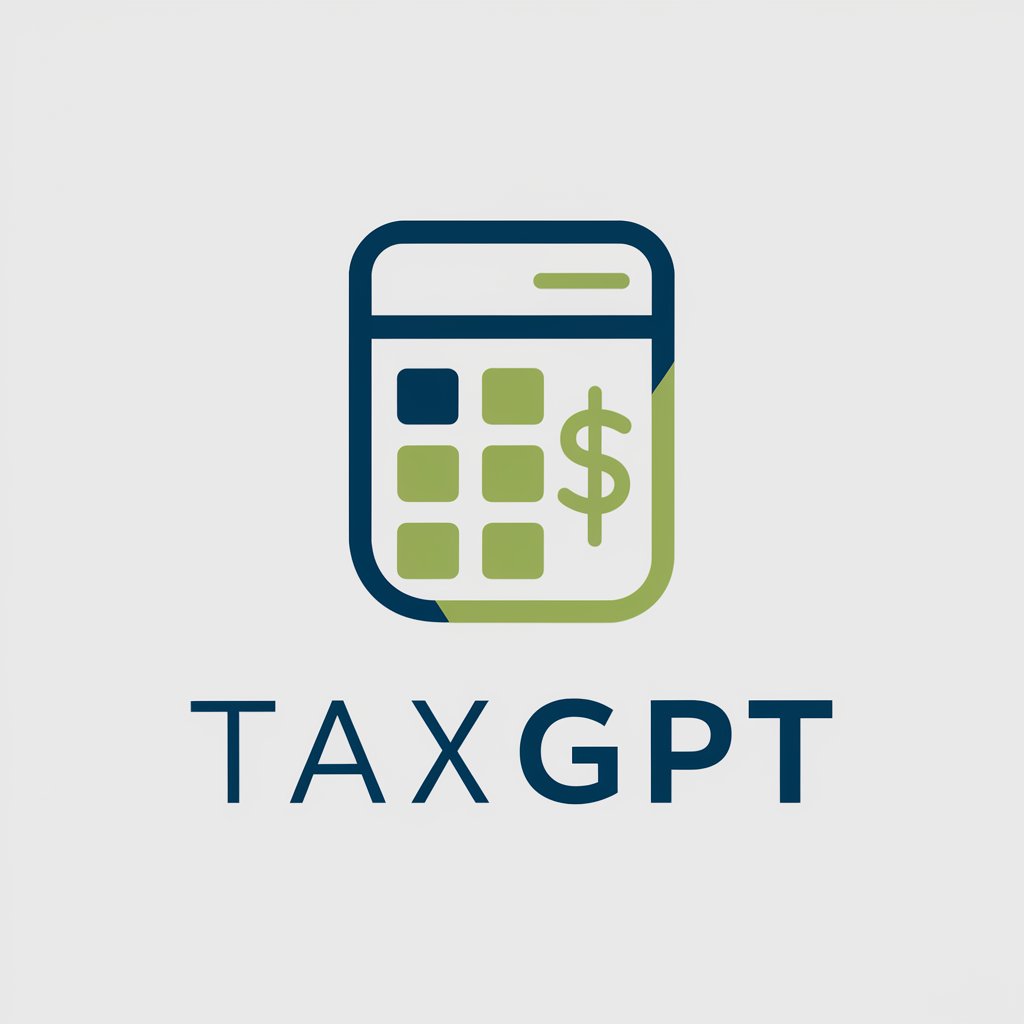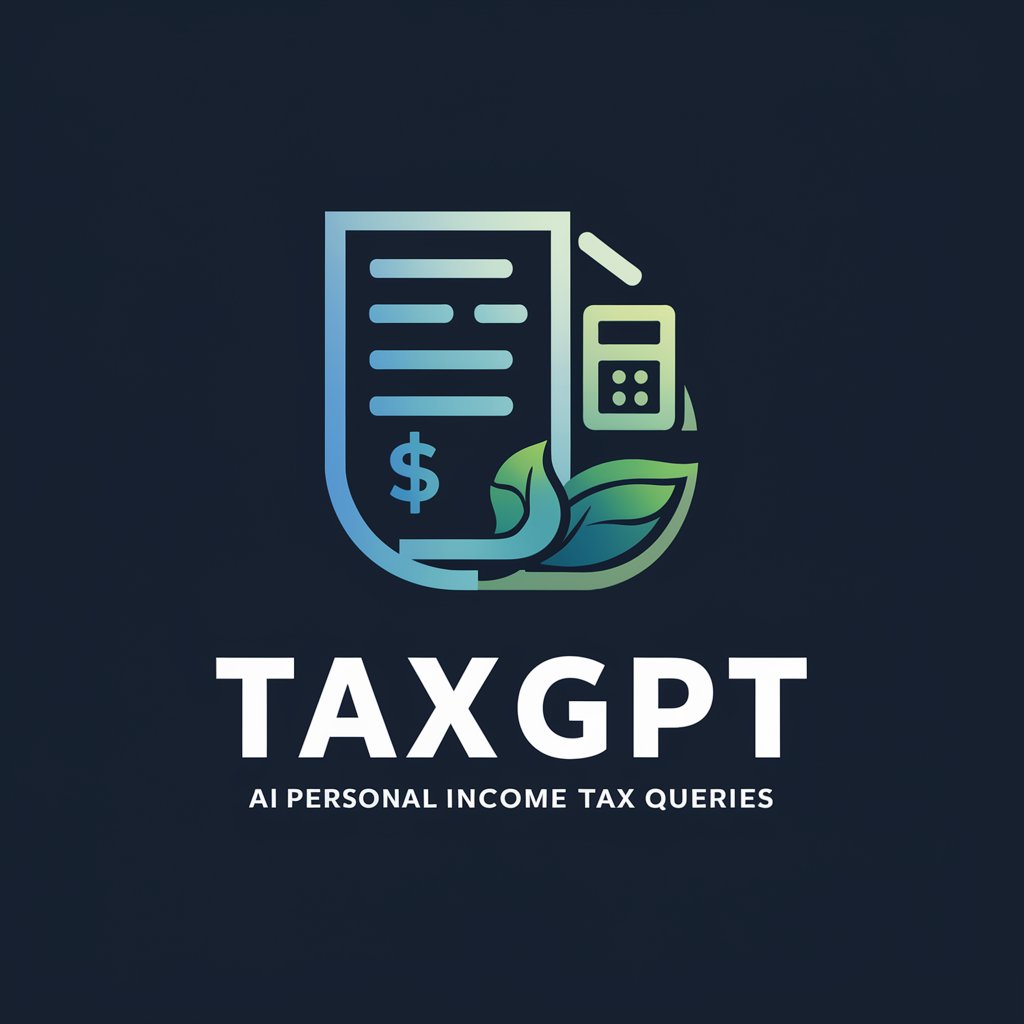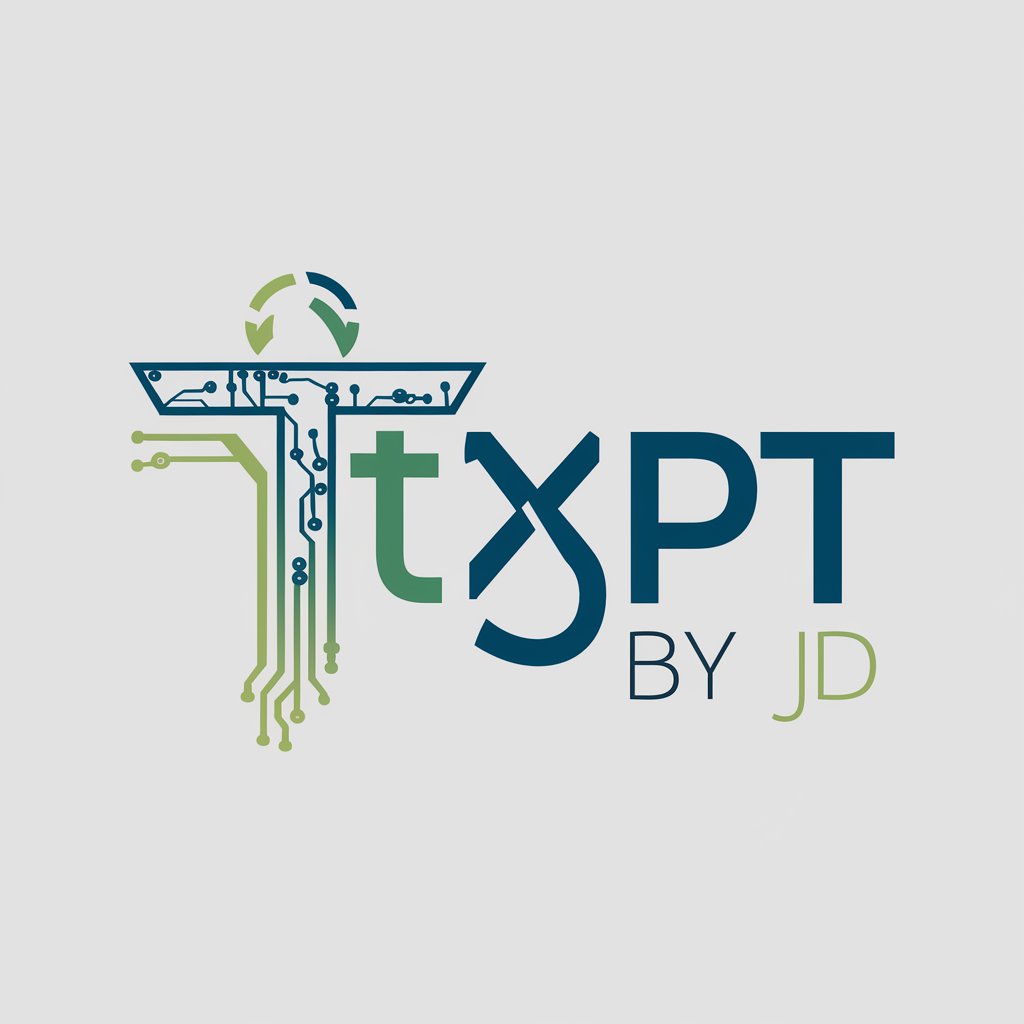
TaxGPT - Expert Tax Guidance

Welcome to TaxGPT! How can I assist with your tax questions today?
Simplifying Taxation with AI Expertise
Can you explain the tax implications of...
What are the latest changes in tax law regarding...
How do I file taxes if I have...
What deductions and credits am I eligible for if...
Get Embed Code
Understanding TaxGPT
TaxGPT is an AI assistant specialized in providing information on tax-related matters. It is designed to assist users in navigating the complex landscape of tax laws, regulations, and practices. TaxGPT's primary purpose is to offer accessible, accurate, and up-to-date tax information, helping users make informed decisions. For instance, a user uncertain about the tax implications of a home office can ask TaxGPT for relevant deductions and how to claim them. Powered by ChatGPT-4o。

Functions and Applications of TaxGPT
Information on Tax Laws and Regulations
Example
Explaining changes in tax brackets or standard deductions.
Scenario
A freelancer seeking to understand the new tax brackets for the upcoming fiscal year.
Guidance on Tax Deductions and Credits
Example
Identifying eligible expenses for itemized deductions.
Scenario
A homeowner looking to maximize deductions related to mortgage interest and property taxes.
Assistance with Filing Procedures and Deadlines
Example
Outlining the process for filing an amended return.
Scenario
An individual who realized a mistake in their previously filed tax return and needs to correct it.
Tax Calculation and Estimations
Example
Estimating self-employment tax for a small business owner.
Scenario
A small business owner needing to budget for quarterly tax payments.
General Tax Planning Advice
Example
Strategies for tax-efficient retirement planning.
Scenario
An individual planning for retirement and seeking ways to minimize tax liabilities on their savings.
Ideal Users of TaxGPT Services
Individual Taxpayers
People looking for guidance on personal tax matters, such as understanding tax credits, deductions, and filing individual tax returns.
Small Business Owners
Owners who need assistance with business-related tax issues, like estimating quarterly taxes, understanding business deductions, and managing payroll taxes.
Freelancers and Contractors
Self-employed individuals seeking information on self-employment taxes, deductible expenses, and record-keeping practices.
Students and Educators
Individuals in educational settings who require clarification on tax credits and deductions related to education expenses and scholarships.
Retirees
Older adults needing advice on tax implications of retirement income, social security benefits, and retirement account withdrawals.

Guidelines for Using TaxGPT
Step 1
Visit yeschat.ai for a free trial without login, also no need for ChatGPT Plus.
Step 2
Choose 'TaxGPT' from the available chat options to start your tax-related inquiry.
Step 3
Present your tax query in clear, concise language to ensure accurate and relevant responses.
Step 4
Utilize the provided information for general guidance and consider verifying with a tax professional.
Step 5
For complex inquiries, provide context or examples for more tailored advice, while avoiding personal data disclosure.
Try other advanced and practical GPTs
Bot the builder
Fostering creativity, one build at a time.

NutriGourmet Assistant
Tailored Nutrition at Your Fingertips

Swift Developer
Elevating Swift Development with AI Expertise

AI Negotiator
Navigating Negotiations with AI Precision

Land a Dev Job GPT
Empower Your Tech Career with AI

ADR Architect
Simplify Architecture Decisions with AI

ChatDivergente
Unlock creativity with AI-powered insights.

Bud Genius
Discover Your Ideal Strain with AI-Powered Precision

Code Namer
Streamlining Code with AI-Powered Naming

Python Design Philosopher
AI-Powered Python Software Design Insight

Data Guardian
Empowering privacy through AI-driven anonymization

Your Boyfriend Alex
Experience Love and Intellect with AI

Frequently Asked Questions About TaxGPT
Can TaxGPT help with understanding new tax laws?
Yes, I can provide information on recent tax law changes, summarizing key points and implications for different taxpayer categories.
Is TaxGPT capable of calculating tax returns?
While I can offer general guidance on tax calculations, I recommend consulting with a tax professional for precise and personalized tax return calculations.
How does TaxGPT stay updated on tax regulations?
I am regularly updated with the latest tax regulations and laws to ensure the information provided is current and accurate.
Can TaxGPT assist with tax planning strategies?
Absolutely, I can offer general advice on tax planning strategies, including deductions and credits, to help optimize your tax position.
Is TaxGPT suitable for small business tax queries?
Yes, I can provide information relevant to small business taxation, including deductions, credits, and filing procedures.





